‘Gambling killed our sons’ – Sheffield families unite in grief to save others


Jack Ritchie, from Nether Edge, and Chris Bruney, from Aston, were smart and popular, had promising careers and always seemed bright and bubbly to those who knew them.
Yet within seven months, Jack, aged 24, and 25-year-old Chris had both taken their own lives after losing long battles with gambling addiction which began when they were children.
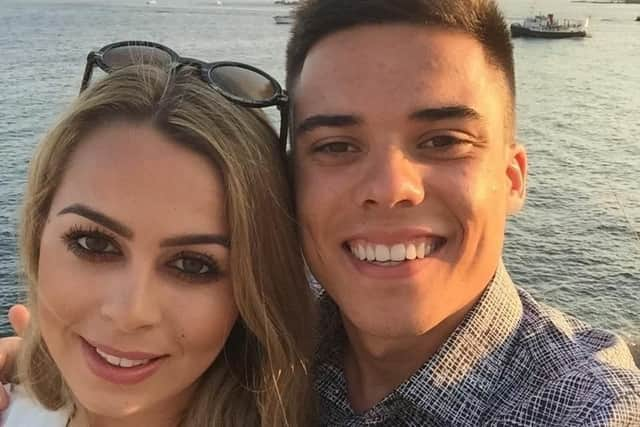

Advertisement
Hide AdAdvertisement
Hide AdTheir families tell how they were so alike and would probably have been firm friends had they known one another, but the tragic tales of how gambling consumed their lives to the point they saw no way out are also depressingly similar.
When their grief-stricken parents started researching more about the illness which killed them, they were shocked to find it was a story playing out across the country.
These young men had not turned to betting to fill a void in their lives, nor had they run up ruinous debts; they were bright, well-liked and seemingly happy individuals with loving families and great prospects, for whom gambling was their only problem.
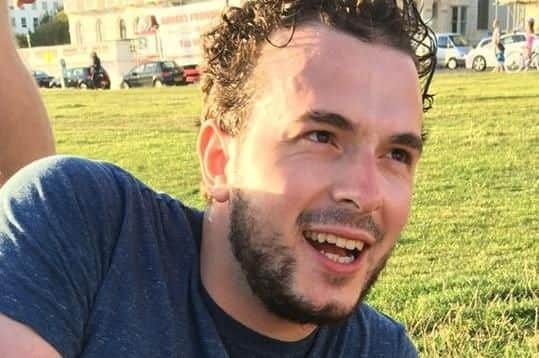

There are no official statistics on the number of suicides in the UK linked to gambling, because addiction is sadly so rarely diagnosed, yet research suggests it claims between 250 and 650 lives a year.
Advertisement
Hide AdAdvertisement
Hide AdThat’s why Jack and Chris’ families teamed up with those of other young victims around the country to launch the pressure group Gambling With Lives, which is working to raise awareness of the dangers and push for changes to protect those at risk.
Gambling addiction is often described as a ‘hidden’ illness, because the signs can be so hard to spot and compared with alcoholism or drug dependency it has traditionally received minimal coverage.
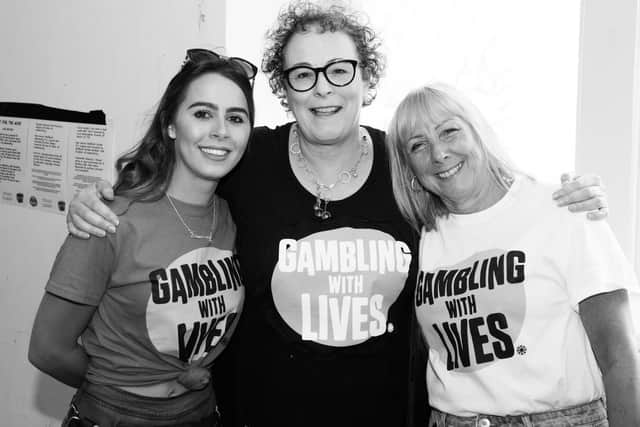

If that is the case, says Jack’s mother Liz, then gambling-related suicide is the ‘invisible’ killer.
“We got together because nobody was saying anything about the link between suicide and gambling, so it was left to a group of bereaved families to speak up,” she said.
Advertisement
Hide AdAdvertisement
Hide Ad“We owe it to Jack, Chris and all the other boys. We don’t want more families to go through what we’re going through.”
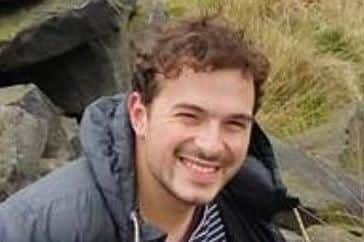

?Chris was an electrical engineer, who had completed his apprenticeship at Rotherham College and been named regional apprentice of the year.
He enjoyed DJing, skiing and motorcycling, and his mother Judith described him as a ‘popular’ and 'caring’ young man, who was always the ‘life of the party’ and ‘loved to make others happy’.
He and his partner Francesca Green were planning to buy their first house together and had booked to visit America when tragedy struck on April 6, 2017.
Advertisement
Hide AdAdvertisement
Hide AdHaving abstained from gambling for months, he went on a binge before taking his life that night, writing of his addiction in a note that he ‘couldn’t fight it anymore’.
After his death, his family learned how he became hooked aged 17 after going on his lunch break with friends from college to a betting shop across the road and winning big on one of the highly addictive fixed-odds betting terminals (FOBTs).
He soon got into online sports gambling and Francesca told how it was during the 2014 World Cup she noticed how much time he spent placing bets on his mobile.
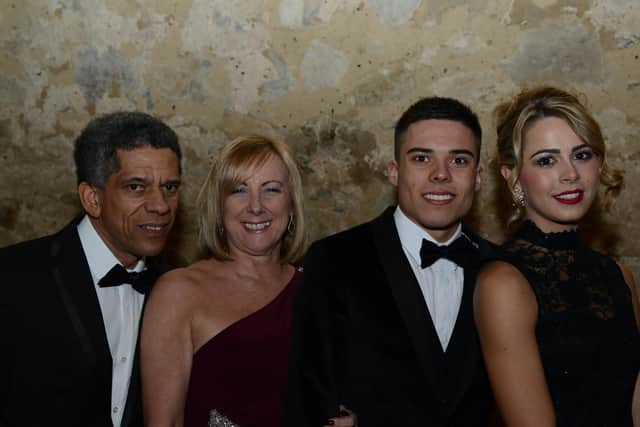

Despite his addiction, she said, he always seemed outwardly happy, though towards the end there were fleeting moments where in hindsight she says he somehow ‘didn’t quite seem himself’.
Advertisement
Hide AdAdvertisement
Hide AdHe was able to stop gambling but every time he did so he would eventually be lured back in by a text, email or a pop-up advert on his computer, offering him everything from free bets to VIP football tickets.
He tried to ‘self-exclude’, but found there was always a way around this self-imposed ban.
Chris knew he had a problem, said his family, but when he sought help he found it wasn't there. He went to his GP, who didn’t diagnose the disorder, and the only dedicated clinic was in London and had a long waiting list.
He spoke to Francesca and his parents, who tried to help, but neither they nor he realised the danger he was in until it was too late.
Advertisement
Hide AdAdvertisement
Hide Ad“Chris told me once he couldn't get the high he got from gambling from anything else,” said Francesca.
“At times I felt like I wasn't enough because he thrived on the thrill he got when he gambled.”
Jack’s father Charles described him as an ‘outgoing’ and ‘warm-hearted’ young man, who would give sandwiches to homeless people he saw on the streets and with whom his friends knew they could share their problems.
He was a huge Sheffield United fan and was into music, playing the guitar.
Advertisement
Hide AdAdvertisement
Hide AdHaving graduated from the University of Hull with a 2:1 in history, he was teaching English in Vietnam and had been largely free of gambling for 18 months when he went on a final binge – prompted, his parents believe, by a free offer from an online bookmaker – before killing himself on November 22, 2017.
Like Chris, he began gambling underage, going with friends to a betting shop near Tapton School, where he was studying at the time, and hitting the jackpot almost immediately on the FOBTs.
After his death, when Charles met the families of other young men who had taken their own lives, he was struck by the similarities.
“Each of the families would say a little about their sons and we were all sitting there thinking you're telling me the story of my own child,” he said.
Advertisement
Hide AdAdvertisement
Hide Ad“These were all bright, happy, popular, normal young men from loving, stable families, who were infected when they were children with a deep and complex addiction from which ultimately escape is almost impossible.
“It can happen to anyone and research has suggested it’s more likely to happen to people who are bright, outgoing and cheerful.”
Liz, who is a retired consultant psychotherapist, said that for addicts gambling was like taking a drug without knowing it – a particularly pernicious one which takes over your mind and erodes your self-control.
For her and the other parents, the immediate goal is to raise awareness of the dangers of gambling, but they are also calling for tighter regulation and better treatment.
Advertisement
Hide AdAdvertisement
Hide AdTheir demands include a statutory levy on the gambling industry equivalent to one per cent of gross profits, to fund research, education and treatment; a ban on TV advertising; mandatory health warnings on machines and websites; and an extension of the £2 maximum stake for FOBTs to online casino games and slots.
There are 430,000 adult gambling addicts in the UK, according to the Gambling Commission, including 55,000 aged 11-16 – with a further two million people ‘at risk'.
Yet the industry donates just £10 million a year to the charity GambleAware, says Charles - a figure which pales in comparison to the £0.75 billion spent on direct marketing alone.
The true danger of gambling is beginning to hit home, thanks to the efforts of groups like theirs and political backers including their local MP Paul Blomfield.
Advertisement
Hide AdAdvertisement
Hide AdThe NHS Long Term Plan sets out proposals for more clinics to treat addicts.
But Liz, a former consultant psychotherapist with the NHS in Sheffield, says it should go much further, with no mention in the plan of prevention and nothing about training GPs and other health professionals to diagnose gambling addiction.
Gambling With Lives’ website includes a heartbreaking shrine to those who have taken their lives - a photo gallery to which Liz tells me on the day I meet her yet another young victim is about to be added.
Without action, it is a toll she fears will continue to grow.
Advertisement
Hide AdAdvertisement
Hide Ad“A lot of gambling addicts who have followed us have said they’ve tried to take their own lives at some stage," she said.
“We need to wake up to the potential epidemic we have on our hands.”
You Don't Know Jack, a day of music and art celebrating Jack’s life and raising awareness of the dangers of gambling will take place this Sunday, February 10, from 3pm-11pm, at Sheffield’s Yellow Arch Studios.
For more information about the event, advance tickets for which cost £4, visit https://tickets.partyforthepeople.org/events/4471-you-don-t-know-jack-fundraiser.
Advertisement
Hide AdAdvertisement
Hide AdIf your family has been bereaved by gambling-related suicide, you can email [email protected] or call 0786 4299 158.
For help, advice or support in relation to your gambling, visit BeGambleAware.org or contact the National Gambling Helpline on 0808 8020 133.
For free and confidential support, call the Samaritans on 116 123.